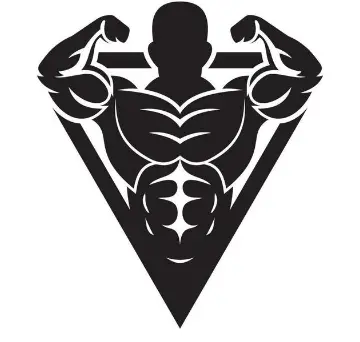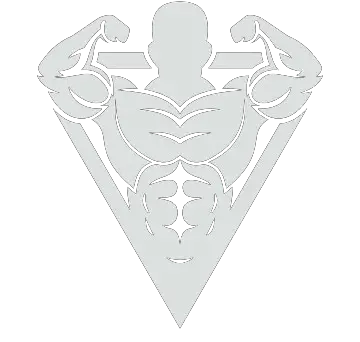When it comes to muscle building, most people envision plates piled high with chicken, eggs, and steak. But times have changed, and so has our understanding of nutrition. Today, more athletes, bodybuilders, and fitness enthusiasts are adopting a vegan muscle building diet to fuel their strength goals while staying true to their ethical or health-based principles.
The question is no longer whether you can build muscle on a plant-based diet but rather how to do it effectively. A vegan diet, when thoughtfully planned, can offer all the nutrients you need to maximize your workouts, recover efficiently, and smash your fitness goals.
In this article, we’ll explore the science of muscle growth, the top vegan protein sources, meal plans, macronutrient ratios, and how to overcome common challenges. Whether you’re new to plant-based eating or looking to optimize your current vegan muscle-building routine, this guide has you covered.
Table of Contents
ToggleThe Science of Muscle Building on a Vegan Diet
Building muscle comes down to three key components:
- Resistance Training – Stimulates muscle growth by causing micro-tears in muscle fibers.
- Sufficient Calories – Provides the energy needed for training and recovery.
- Protein Intake – Supplies the building blocks (amino acids) to repair and grow muscle tissue.
Contrary to popular belief, plant-based diets can support these goals effectively. Studies show that plant proteins, when consumed in adequate amounts and combined for amino acid variety, can deliver similar muscle-building benefits as animal proteins.
Myth-Busting: Can Vegans Get Enough Protein?
One of the most common misconceptions about a vegan diet is that it’s protein-deficient. In reality, there are plenty of protein-rich plant foods that can fuel your muscle gains. The key is to eat a variety of foods to ensure you’re getting all nine essential amino acids.
Protein Quality and Combining Foods
While some plant proteins are incomplete (lacking one or more amino acids), combining them throughout the day can create a complete amino acid profile. For example:
- Rice and Beans: Together, they form a complete protein.
- Peanut Butter on Whole-Grain Bread: Another classic combination.
Top Vegan Protein Sources
Here’s a deeper dive into protein-packed plant-based foods:
| Food | Protein per 100g | Why It’s Great |
|---|---|---|
| Tempeh | 19g | High in protein and probiotics for gut health. |
| Seitan | 21g | A wheat gluten product with a meaty texture. |
| Tofu | 10g | Versatile for stir-fries, smoothies, and scrambles. |
| Quinoa | 4g | A complete protein and rich in magnesium. |
| Lentils | 9g | Packed with fiber and iron for energy. |
| Hemp Seeds | 31g | Rich in omega-3s and adds crunch to meals. |
| Chickpeas | 8g | Perfect for hummus, salads, or roasted snacks. |
| Spirulina (powder) | 57g | A superfood with an impressive protein density. |
Building the Ideal Vegan Muscle-Building Diet
To build muscle, you need the right balance of macronutrients:
Macronutrient Breakdown
- Protein (25–30%): Helps repair and grow muscles.
- Carbohydrates (40–50%): Provides energy for intense workouts.
- Fats (20–30%): Supports hormone production and overall energy.
Calculating Your Needs
For a 2,800-calorie vegan muscle-building diet:
- Protein: ~175g (4 calories per gram = 700 calories)
- Carbs: ~300g (4 calories per gram = 1,200 calories)
- Fats: ~100g (9 calories per gram = 900 calories)
Vegan Muscle-Building Meal Plan
Here’s a detailed, example meal plan:
Breakfast: High-Protein Smoothie
- 1 cup almond milk
- 1 frozen banana
- 1 cup frozen berries
- 2 tbsp chia seeds
- 2 tbsp peanut butter
- 1 scoop vegan protein powder
Macros: ~30g protein, 50g carbs, 15g fat
Morning Snack: Tofu Scramble Wrap
- 1 block tofu (crumbled and cooked with spices)
- 1 whole-grain tortilla
- 1 cup sautéed spinach
- Salsa for flavor
Macros: ~40g protein, 30g carbs, 10g fat
Lunch: Quinoa Buddha Bowl
- 1 cup cooked quinoa
- 1/2 cup chickpeas
- 1/2 avocado
- Roasted sweet potatoes and broccoli
- Tahini dressing
Macros: ~35g protein, 60g carbs, 20g fat
Afternoon Snack: Hummus and Veggies
- 1/2 cup hummus
- Sliced carrots, celery, and bell peppers
- Handful of almonds
Macros: ~15g protein, 25g carbs, 15g fat
Dinner: Tempeh Stir-Fry
- 1 block tempeh (cubed and sautéed)
- 1 cup cooked brown rice
- Mixed vegetables (broccoli, snap peas, carrots)
- Soy sauce and sesame seeds
Macros: ~40g protein, 50g carbs, 15g fat
Post-Workout Shake
- 1 scoop vegan protein powder
- 1 cup almond milk
- 1 banana
- 1 tbsp flaxseed
Macros: ~25g protein, 30g carbs, 10g fat
Supplements for Vegan Athletes
Although you can achieve your goals through food, certain supplements can optimize results:
- Vegan Protein Powder: Convenient for post-workout recovery.
- Creatine: Enhances strength and muscle performance.
- BCAAs: Supports muscle repair, especially during long workouts.
- Vitamin B12: Essential for energy and nervous system health.
- Omega-3s (DHA/EPA): Reduces inflammation and improves recovery.
Addressing Common Challenges
1. Eating Enough Calories
Since plant-based foods are generally less calorie-dense than animal products, hitting a caloric surplus can be tricky. Focus on calorie-dense options like:
- Nut butters
- Avocados
- Coconut milk
- Granola
2. Getting Complete Proteins
Pair incomplete proteins strategically throughout the day. For example, mix lentils with quinoa or peanut butter with whole-grain bread.
3. Overcoming Energy Dips
Carbs are your best friend for maintaining energy during workouts. Include slow-digesting carbs like oats, sweet potatoes, and brown rice in your meals.
Vegan Success Stories in Fitness
Still skeptical about building muscle on a vegan diet? Take inspiration from vegan athletes like:
- Nimai Delgado: A professional bodybuilder who’s never eaten meat.
- Patrik Baboumian: One of the world’s strongest men and a passionate vegan.
- Venus Williams: Tennis legend thriving on a plant-based diet.
Their success highlights that plant-based nutrition isn’t a limitation—it’s a strength.
Final Tips for Vegan Muscle Building
- Meal Prep: Save time and stay on track by preparing meals in bulk.
- Stay Hydrated: Proper hydration supports muscle recovery.
- Experiment with Flavors: Keep your meals exciting with different herbs, spices, and cuisines.
- Track Progress: Use apps like MyFitnessPal to monitor macros and adjust as needed.
Vegan Diets and Muscle Building:
A vegan muscle building diet isn’t just feasible—it’s a powerhouse approach to fueling your body ethically and effectively. By prioritizing plant-based protein sources, balancing macronutrients, and staying consistent with your training, you can achieve impressive muscle gains without compromising your values.
Ready to take your fitness journey to the next level? Start incorporating these tips into your routine, and see how your body transforms on a plant-based diet.
Have questions about vegan muscle building? Drop a comment below or share your success stories with us!

